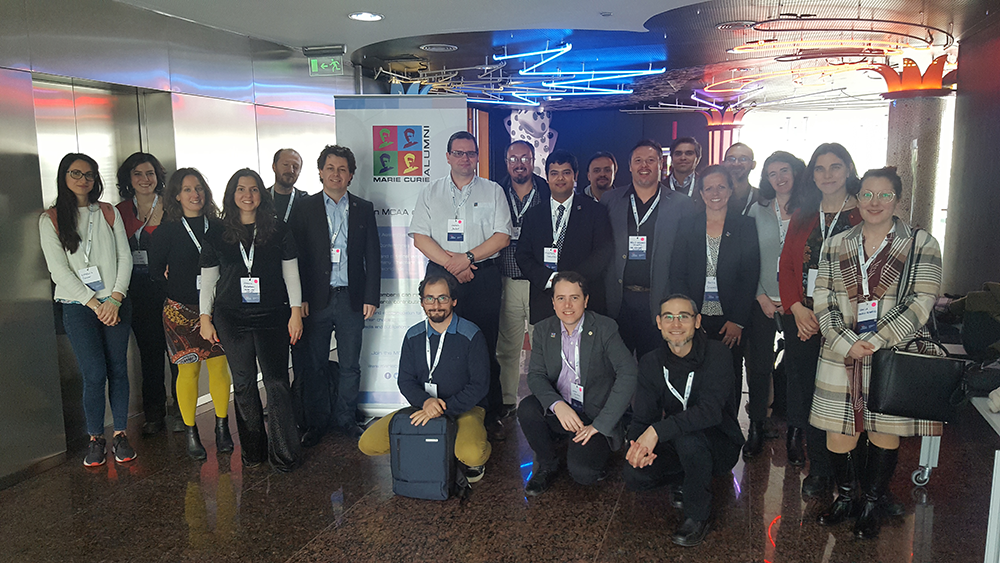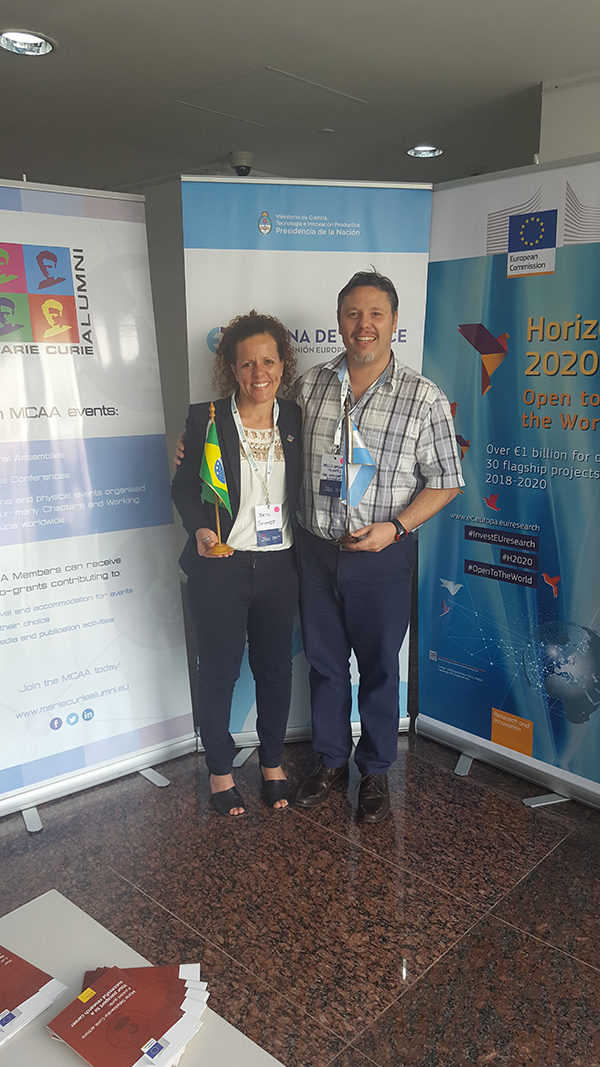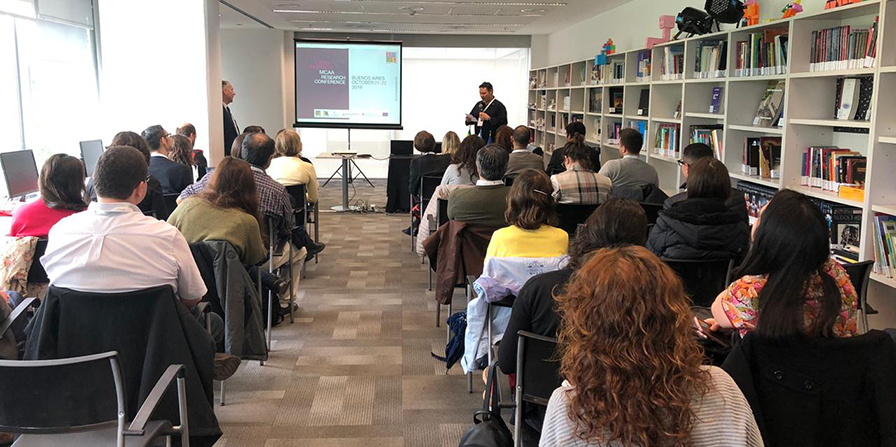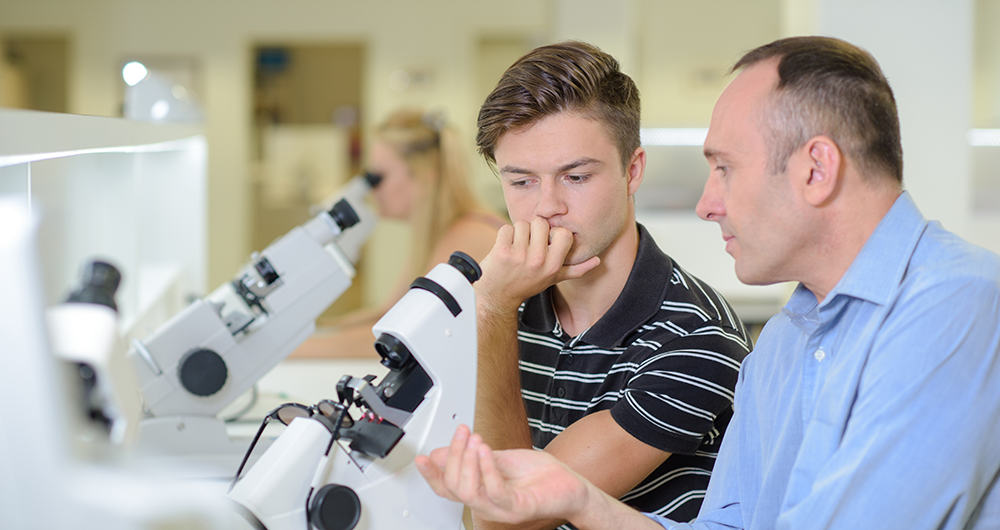Events - Newsletter December 2019
NEWSLETTER
The Argentinian and Brazil Chapters co-organised the MCAA’s first ever Latin America conference in Buenos Aires, Argentina, from 21 to 22 October. Both chairs, Pablo Emiliano Tomatis and Elizabeth Schmidt, share their impressions.
Elizabeth Schmidt
I was born in Brazil and have two nationalities – Brazilian and German. I am a veterinarian and since 2009 have been working as an assistant professor at São Paulo State University (UNESP), Botucatu campus, at the Department of Veterinary Clinical Sciences. Currently, I am developing a research project with parasitic diseases and the inflammatory response in domestic animals.
Pablo Emiliano Tomatis
I was born in Rosario, Argentina. I also have an Italian passport. I have a master’s degree in Biotechnology (2000) and have earned a PhD in Biological Science from the University of Rosario (2008). I held a postdoc at the University of Zürich, Switzerland, thanks to an Individual Fellowship Marie Skłodowska-Curie Actions (2012‒2016). I returned to Argentina to work as a researcher at the Institute of Molecular and Cell Biology of Rosario and as professor of biophysics at the University of Rosario.
ABOUT THE CHAPTERS
The aim of the Argentinian and Brazil Chapters is to facilitate research and networking between the two countries and Europe. Their goal is also to increase visibility and showcase MSCAs in both countries. They also devote many of their activities to promoting science and research communication, as well as highlighting the advantages of being active members in both Chapters.
“We aim to establish several cooperations with important institutions that will benefit our members today and in the near future,” explain Pablo and Elizabeth.
Several activities are already planned, such as workshops on how to apply for an MSCA grant, and about participation in national conferences where members can promote the MSCAs with posters, talks or stands. Both chapters also boast an active presence on social networks.


To secure external financial support, both Chapters have established partnerships with local governments and EURAXESS Latin America and the Caribbean. “This is extremely important in order to obtain additional support for the Chapter activities,” say Pablo and Elizabeth.
GROWING MEMBERSHIP
The Brazil Chapter currently counts 74 members. According to Elizabeth, the aim is to reach or surpass 100 members by the end of 2020.
The Argentinian Chapter’s membership totals 63. Half of these members work in the EU. According to the MCAA database, there are 142 members with Argentinian nationality.
UNITING LATIN AMERICA’S RESEARCHERS
The first MCAA Latin America Research Conference was held in Buenos Aires, Argentina, in October.
Most of the Argentinian members of the Chapter working in Argentina were able to attend, together with the Chair, Vice Chair and other members from the Brazil Chapter. Also, a member from Chile was invited to support the creation of the Chilean Chapter. In total, 38 MCAA members attended. An open scientific meeting was also organised, where 18 other scientists attended.
External speakers were also invited to present Open Science and Scientific cooperation between Brazil and Argentina.
An informative session about MSCA was held at the Spanish embassy on the second day of the conference. This session provided a unique opportunity for participants to learn about EURAXESS.
The closing session of the meeting was dedicated to MCAA members only, where a training on grant-writing proposals was held.
“It was an important opportunity to exchange information, ideas and experiences,” say Elizabeth and Pablo. “We hope to collaborate and to join efforts, looking forward to rethinking and rebuilding the challenges of daily life and the future of our countries,” they added.
The next Latin America event will be held in Rio de Janeiro in 2020.
Various activities were organised during the conference, such as discussing MSCA Alumni scientific activities in Argentina and Brazil. Members of both Chapters also presented their research. As a special guest, Mostafa Shawrav took the floor to discuss academic positions in Europe, career paths for researchers and MCAA Science Policy initiatives. “MCAA members got inspired from these talks and now are more enthusiastic to actively contribute to MCAA,” say Elizabeth and Pablo.
External speakers were also invited to present Open Science and Scientific cooperation between Brazil and Argentina.
An informative session about MSCA was held at the Spanish embassy on the second day of the conference. This session provided a unique opportunity for participants to learn about EURAXESS.
The closing session of the meeting was dedicated to MCAA members only, where a training on grant-writing proposals was held.
“It was an important opportunity to exchange information, ideas and experiences,” say Elizabeth and Pablo. “We hope to collaborate and to join efforts, looking forward to rethinking and rebuilding the challenges of daily life and the future of our countries,” they added.
The next Latin America event will be held in Rio de Janeiro in 2020.

WANT TO ATTEND THE NEXT LATIN AMERICA CONFERENCE? CONTACT THE ARGENTINIAN AND BRAZIL CHAPTERS:
argentina.Chapter@mariecuriealumni.eu
brazil.Chapter@mariecuriealumni.eu
Mentoring is an effective and simple way to engage and support people and professionals to unleash their full potential. But the task isn't easy, and it is increasingly being confused with supervision.

Mentoring can help people envision where they want to go and what they want to accomplish, as well as help them think through the strategies and tactics that can lead them there. But while the potential to thrive in these roles is vast, the opportunities to obtain this training and experience are limited – at times, linked to privilege.
What's more, mastering the art of mentoring isn't easy and it is increasingly being confused with supervision.
A recent webinar, backed by the Marie Curie Alumni Association and held in June, helped explore the realities of being a mentor and how to do it best.
IDENTIFYING THE MENTOR IS CRUCIAL
“Someone managed to see in me what I could not see and then had the generosity, to give me the time and interest in my work and goal,” said Matthew Collins, a professor of biomolecular archaeology at the University of Copenhagen. “It's really about time and empathy… that motivates others.”
Collins led the webinar with Alan J. Grodzinsky, a professor of biological, electrical, and mechanical engineering at the Massachusetts Institute of Technology, who quickly warned of the need to distinguish between mentoring and supervision.
“Supervisors,” he said, “help you think about your next move and what you have been doing [for example] in the lab and what it means, whereas a mentor is a mentor not just within the field of science and engineering, for example, which you may be focused on, but in life.”
A mentor, Grodzinsky explained, “can recognise when you are thinking about other things, providing a broader and more personal guidance to what you are doing.”
And that, experts say, ultimately helps empower mentees to unleash their full potential, achieving their goals.
“It's an issue, almost, of personal connection,” said Grodzinsky. “Yes, we're always thinking about what's next, what's next in the lab, what's the next exciting thing you may do in terms of an experiment, but at the same time it is very important, as a mentor, to establish an environment where a person can come in and think about how they can take the next step for themselves.”
“It's really important to empower the person to believe that they can take the next step and think for themselves and not to have to rely directly on the supervisor.”
“And at the end of the day, it's good to be able to sit down and have a beer with the student or any kind of mentee because that enables you to get past the particulars of an experiment and to think also about what may be going on in the orchestra across the street and what's playing at the movies,” he concluded.
